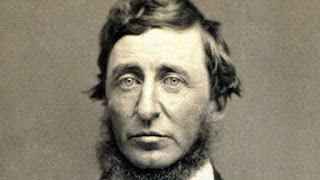Forgiveness - Part 1
Seventy-Seven Times
Once there was
a man who fervently desired integrity, living a life of freedom and love in
relationship with the people in his community. He met a teacher and became his student.
One particular
day, after several encounters with people who were inconsiderate,
self-absorbed, and cruel, he grew frustrated. He resented these
people. He resisted them, secretly wishing they “would get what was coming to
them.” Frustrated, he approached
his teacher. Knowing the teacher
was a great man, full of compassion, he wanted to know how compassionate he
must be in relationship to these people.
“Teacher,” he
asked, “how many times do I have to forgive my brother or sister who wrongs
me? Seven times?” for he
considered forgiving seven times was an outlandishly generous act very few, if
any, could practice.
“Not seven
times but seventy-seven times,” the Teacher replied. The student stood open-mouthed, staring wide-eyed at his
teacher. After letting the answer
sink in, the teacher continued:
There was a man who owed several million dollars to a wealthy and powerful businessman. He could not pay his debt. He went before the businessman and begged, “I cannot pay my debt right now. Be patient with me, and I will pay it back.” The powerful businessman had compassion for the man and said, “I forgive your debt. You don’t owe anything.
Go and live free, giving to others what I have given you.” The man was overwhelmed with his good fortune, and he went out from the businessman’s office jubilantly.
Later in the day that same man came upon someone who owed him one hundred dollars. He grabbed the man in debt by the collar, screaming, “Give me my money! Now!” When news of this got back to the businessman, he filed suit against the man and in court he testified, saying to the man, “You cruel and wicked man! You should have forgiven that man his one hundred dollar debt! Now, before this court, you will have to pay back the millions I had forgiven you.”[i]
The teacher
turned to his student and said, “We all have wronged others at some point in
our lives. We’re all indebted to
others in some way. We must always
remember, ‘There, but for the grace of God, go I.’
“Hardness brings hardness, and softness brings softness. Inside each of us rests all the secrets of our heart that if the rest of the world knew, it would be horrified. And so, we always see the seven offenses of our brothers and sisters through the lens of the seventy-seven horrors within us.
“We can never
change another’s heart. But our
hearts of compassion are bridges some will cross, and as they rest in our
hearts of compassion and forgiveness, they too, like us, will become one of The
Seventy-Seven Warriors of Love.”
Before you
take out your notebook and get ready to mark off forgiving someone seventy-seven
times before you either give them your two-cents worth or cut them loose from
your life (yes, I have thought about this at times too when it comes to some
people in my life), realize that the teacher called on his student to
continually forgive.
Forgiveness is
the only way to truly live your calling and walk in your Greatness. All other ways are ultimately dead
ends, specifically, your death, either mentally, spiritually, or even
physically.
It’s a tall
order, isn’t it? How do I forgive even them? Yes, that’s right, picture them in your mind right now (you know who I’m talking about –
there’s always at least one person in our lives we find it very difficult to
forgive). So, let’s figure this
out.
Forgive
to grant pardon for an offense or
debt;
to cease to blame or hold
resentment against someone or something;
to
free or pardon someone from penalty
When you get
what you deserve, that’s justice.
When you get what you don’t deserve (the good stuff!), that’s
forgiveness.
To forgive actually means to give before; to give yourself to another as before they wronged you, to treat them as if nothing has changed in
your relationship.
Why don’t we
want to forgive? Because many of
us would rather be right than be successful. Filled with resentment, we would rather drink the poison
than find the cure.
Let Me Be Frank
Hi, I’m
Frank. Sorry, couldn’t
resist. Forgive me!
British playwright and novelist Somerset Maughm writes, “If I wrote down every thought I have ever thought and every deed I have ever done, men would call me a monster of depravity.”[ii] Ouch! Truth! About me! It burns us, precious! (FYI: Gollum struggled with forgiveness.).
We know the
horrors of what we have thought and done, and we think it impossible to be free
of those monstrous deeds. And
sometimes something weird happens when we hold on to our wrongs. We begin to view others as cynically as
we view ourselves. We assume the
worst about others because we know what we ourselves have done. As American author Anais Nin writes, “We
don’t see things as they are. We
see them as we are.”[iii] This illness (and, rest assured, it is
an illness[iv] according to Doestoyevsky) leads us to
view others cynically, or it paralyzes us from walking in our Greatness,
absorbed in a negative view of others, the world, or ourselves. (Just look at
Gollum. He was hideous!)
The Beautiful Mess of Excellence
All kidding
aside, perfection is impossible, but excellence
is attainable. We all make
mistakes, but we also do beautiful things. I like to think of us as a beautiful mess! If you are to live your calling and
walk in your Greatness, you must:
1. Admit your wrong-doings.
2. Let go of your guilt by apologizing to
yourself, others, and God.
3. Let go of mistakes daily. Lift them up and let them go.
4. Learn from your mistakes. Don’t repeat them.
5. Change your behavior.
6. Celebrate the beautiful and positive
things you are doing daily.
7. Embrace the beautiful mess you are!
7. Embrace the beautiful mess you are!
Shift your
mind right now! Write down these
steps and practice them daily. In
twenty-eight days you will be amazed how much happier, healthier, and free you
are.
[i] Matthew 18
[ii] Maugham, W.
Somerset. The Summing Up. Penguin
Classics, 1992. Print. The quote
contained in The Greatness Revolution is widely circulated on the web on
various quotation websites. The
actual quotation is “For my part I do not think I am any better or any worse
than most people, but I know that if I set down every action in my life and
every thought that has crossed my mind the world would consider me a monster of
depravity.”
[iii] Nin,
Anais. Seduction of the Minotaur.
Swallow Press. 1961.
Print. Nin attributes this quote to The Talmud.
[iv] Dostoevsky,
Fyodor. Crime and Punishment. Trans.
Constance Garnett. Dover Thrift
Edition. Dover Publications. August, 2001. In his Epilogue, Dostoyevsky has the protagonist Raskolnikov
come to grips with the disease that infects humanity, namely it is the virus of
unforgiveness. Dostoevsky
describes it as an illness.
Raskolnikov, himself, fights this disease throughout the entire novel
until he finally changes his mind and sees his ever constant companion, Sonya
(her nickname for Sophia, meaning wisdom) who loves Raskolnikov despite the
hardships he places on her and the hardships of her life as well. It is her unconditional and faithful
love for Raskolnikov, despite his cruelty and hard heart, that prompts Raskolnikov
to accept grace, forgiveness, and mercy, the love of God, an attribute, as
Shakespeare puts it in The Merchant of
Venice, that is the very essence of God.





















































